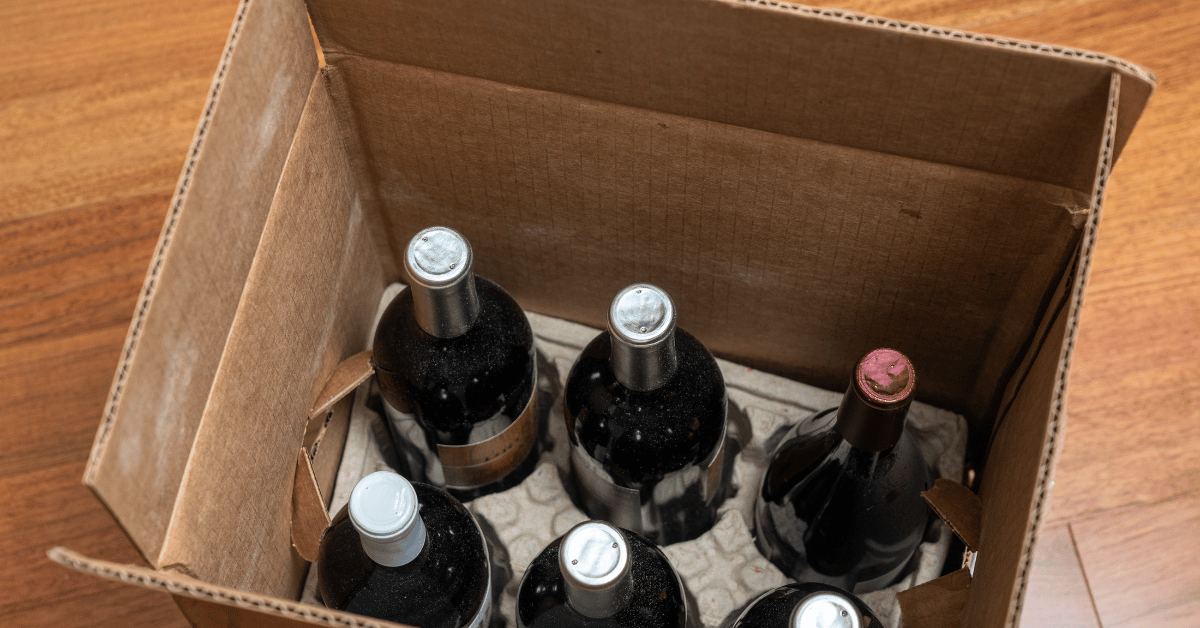Illicit alcohol shipping is a nationwide problem garnering increased attention in Michigan. Pandemic economics were a mixed bag with some industries suffering and others thriving. E-commerce was among the latter, and alcohol was one of the reasons why. Unfortunately, this opportunity was so lucrative to businesses that it incentivized them to ship alcohol even when they weren’t licensed to do so. This has become a serious concern in the Great Lakes State.
Michigan has 19 active lawsuits against wineries, distilleries and breweries. Companies continue to break the laws that govern alcohol shipping. They either ship more than they’re allowed to ship or they ship without proper licenses.
How Illegal Alcohol Shipping Became a Problem
 Part of the success in e-commerce during the pandemic came with adding alcohol to the list of products distributed by delivery-as-a-service (DaaS). DaaS boomed during the quarantine as people used services like Uber Eats, DoorDash and others to get food delivered to their homes. The same ended up happening with alcohol to a detrimental degree.
Part of the success in e-commerce during the pandemic came with adding alcohol to the list of products distributed by delivery-as-a-service (DaaS). DaaS boomed during the quarantine as people used services like Uber Eats, DoorDash and others to get food delivered to their homes. The same ended up happening with alcohol to a detrimental degree.
It’s a huge, huge problem,” said Ted Mahoney, chief investigator of the Massachusetts Alcoholic Beverages Control Commission. “We have never-before-seen levels of e-commerce, fueled by a pandemic that nobody has ever seen before.”
Massachusetts has its own issues like Michigan. The state saw legally reported alcohol shipping shoot up about 37% from 2020 to 2021. The illegal shipping grew proportionally in the same timeframe. In October, Mahoney addressed this at the 2022 National Alcohol Beverage Control Association Administrators Conference in Pittsburg. Don McGehee, division chief for the Michigan department of the attorney general, was present at the same conference with similar concerns.
Michigan’s Regulatory Challenge
Law enforcement in Michigan has been focused on this problem for the past seven years. Before those seven years, though, the state attempted to sue an out-of-state vendor for shipping alcohol illegally. They lost that court battle.
Today, though, the state’s regulatory climate does make it difficult for vendors to cheat the system. They’re only permitted to ship a certain amount of alcoholic product into the state. They also have to have a licensed presence in the state to go through the state’s three-tier system.
“We find out from the carriers whether the shippers are licensed or not, and then we send out cease and desist letters with info on how to comply,” McGehee said. “If we find out that they shipped again, whether through our controlled buys or the carrier reports, then we sue them.”
Michigan has seen lots of injunctions for previous cases. Others have resulted in fines well beyond $100,000. McGehee is optimistic that they’re putting a sizable dent in the problem, but it’s been a long time coming. They estimate that illegal shipping probably declined as much as 78% in their first year of this active approach and 58% the second year.
Alcohol DaaS Prevalence
On-demand delivery became a huge deal for alcohol during the pandemic. States in which it was legal have seen significant challenges not only on the regulatory side but also on the public safety side. Like Massachusetts and Michigan, Kentucky has seen an uptick in alcohol DaaS of late, too. Contemporary research indicates that this is probably a health hazard for many consumers.
In Australia, the federal government issues wellness advice to citizens through a free, public program called HealthDirect. This government program addresses “alcoholism at home” as a sign of alcohol use disorder (AUD). Harmful alcohol use is often defined by how much one drinks. The number of drinks or the frequency of drinking sessions are likely to increase at home or in solitude according to experts. America’s National Institute on Alcohol Abuse and Alcoholism pinpoints this problem with its list of symptoms of AUD.
Drinking alone at home is becoming more and more of a concern throughout the U.S. Alcohol DaaS is similarly a global concern for U.S. authorities trying to regulate it. A common example of this is covered by Beverage Dynamics:
“A large ecommerce platform in the U.K. operates next door to an alcohol retailer. Working together, they fill an order and ship the item oversees, with a receiving label for a New York company. But when the package arrives at JFK Airport, a nearby cargo company is paged.
The Cargo company picks up the package and then affixes a new receiving label, adding the buyer’s name and address in replacement of the New York company’s address. The cargo company then brings the package to a wholesaler with a shipping license, who sends the box through UPS.
The return address listed? It’s the New York company, which switched from buyer to seller on the label without ever touching the package.”
Alcohol Shipping Linkage with AUD
Having alcohol delivered to the house for consumption can be a slippery slope. Kasey Creswell, associate professor of psychology at Carnegie Mellon University, is a published expert on the subject. She says the domestic context and whether or not one has company can make all the difference for one’s drinking habit.
“The vast majority of alcohol use by adolescents and young adults occurs in social settings with friends,” Creswell told the Dietrich College of Humanities and Social Sciences news team at Carnegie. “There’s a substantial minority of young people, though, who are drinking alcohol alone, and they are telling us that the primary reason they drink alone is to cope with negative emotions. We are finding that such solitary alcohol consumption is an early warning sign for the development of alcohol problems.”
With regulatory control for alcohol shipping being erratic at best, at-home delivery is likely to account for much of the demand. In fact, Beverage Dynamics described another such instance in which that was confirmed to be the case in Kentucky.
An illicit shipping operation fulfilled an order while operating from the 7th floor of a residential building in New York. That order went to a retailer in Kentucky. The retailer took that alcohol across state lines and shipped it from Ohio to a customer via UPS. The shipping label listed the UPS store’s return address with the UPS store manager’s name.
You Might Be Involved
In short, retailers and wholesalers are jumping through hoops to get alcohol to not only each other but also to customers – both by illegal means. Customers who get alcohol delivered to their residence are at greater risk than their peers in many cases for developing AUD.
If you’re a Michigander who gets alcohol delivered, be wary of the services you use. Their actions could potentially implicate you in the scheme inadvertently. Also, take an honest look at your habit. If you’re drinking alone often, you might have a problem already without realizing it. If this sounds like you, visit Landmark Recovery of Western Michigan or call 269.443.0905.

Choose Recovery Over Addiction
We're here 24/7 to help you get the care you need to live life on your terms, without drugs or alcohol. Talk to our recovery specialists today and learn about our integrated treatment programs.




